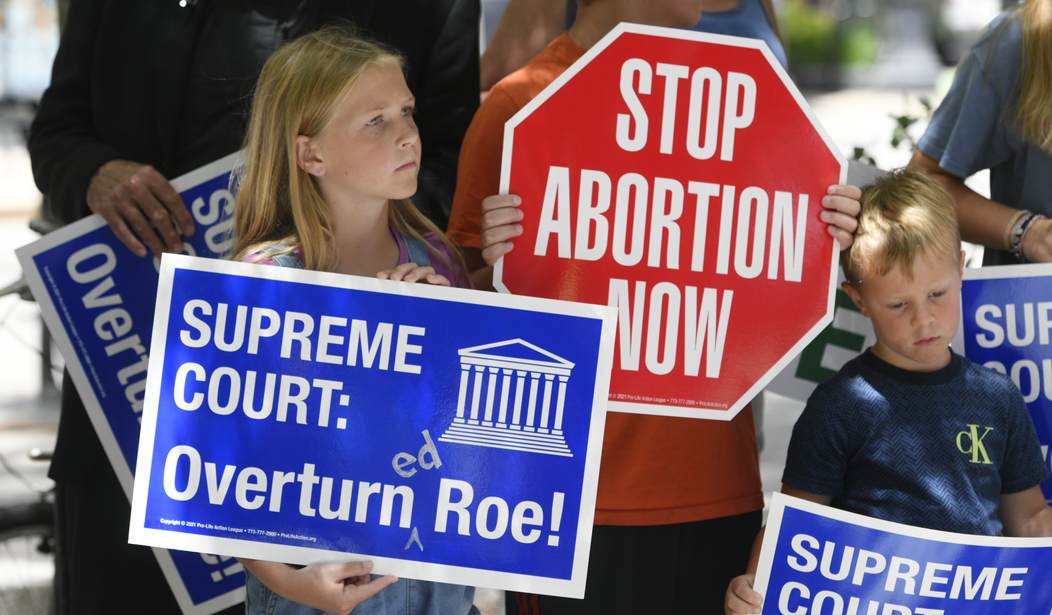For those who have advocated during the past 50 years for the right to life of human beings of embryonic age and fetal age, the Dobbs decision is a monumental achievement, the first stirrings toward an Emancipation Proclamation for unborn Americans.
Though the Dobbs decision does not outlaw abortion or experimentation with human beings of embryonic age, it has great importance for re-enabling serious public discussions of these morally troubling pursuits. In the Dobbs-era of America, millions of previously morally ambivalent Americans who resigned themselves to the finality of legalization now have a fresh chance to obtain redemption by recognizing with their votes the humanity of all human beings, including unborn babies, and brings America closer to achieving our creed of liberty and justice for all. Dobbs rights a legal wrong, but more significantly exposes the moral stain on our national soul of bias against a defenseless minority group of human beings, those conceived and alive, but not yet born.
The Dobbs majority has set for all time an enduring legal precedent grounded in the known science of human life. Abortion is a unique issue for legal arguments over what rights might be protected by the constitution. It poses “the critical moral question” of the permissibility of destroying an “unborn human being.” Because of this crucial moral distinction, the Dobbs decision assures that other more recently won privacy rights, now with constitutional protection, are not threatened by the end of Roe.
Recommended
Having grown up Black in America since 1958, like many others, the equivalence of abortion to U.S. slavery and continuing racism seems self-evident to me. Both are America’s “peculiar institutions” and the immorality of both was obscured for many years by the falsification of the science of human life. Like many Americans who currently support abortion, some slave owners held slaves because the law said they could do so and they benefited from it, even though they did not believe it was right.
The heroic Americans who abolished slavery began by correcting the falsification of the science of human life for enslaved persons. They had to both prove the humanity of enslaved people and expose the horrible human rights atrocities of their enslavement before they could move their ambivalent fellow citizens to a state of moral self-conflict that outweighed their concerns about social and financial losses and fears of reprisals. But these educating appeals were not enough—also required were the American Civil War (caused by other sociopolitical forces besides slavery), and the Emancipation Proclamation.
I hope that 50 years of Roe will be recounted in history as America’s Civil War over abortion. Despite the now enraged protests of pro-abortion elected representatives and pro-abortion advocates gathering in America’s streets and outside public offices, I believe that the Dobbs decision can end the past horrific war without starting a more bitter one. I believe this because I know that pro-life Americans are driven by moral love and not hate and passion for political gain. Their all-embracing mission is to protect the lives and livelihoods of unborn human beings, their mothers, and their families. In America, the birth of children must be more valuable than their abortion. But the abolitionists’ job is not done, more is needed to achieve this advance in American democracy that is still lacking.
Whatever the consequence of Dobbs, it will not be enough to set America on a steady course to achieving its ideals of becoming that shining city on a hill. America also needs a full Emancipation Proclamation of the right to life and liberty for unborn human beings. If our democracy is truly founded on the principle that our constitution protects the intrinsic rights of human beings based only on their intrinsic human status, then like slavery, destruction of unborn human beings must be outlawed, unthinkable throughout the land. Our current knowledge from the valid science of human life makes the justification of such an action obvious. Now, with Dobbs, the rest of our thinking, actions, and laws have a chance to reach that enlightenment in the hearts and minds of the American people, too.
Dr. James L. Sherley, M.D., Ph.D., is President & CEO of Asymmetrex, LLC and an associate scholar at Charlotte Lozier Institute. He was a co-plaintiff in Sherley vs. Sebelius, a lawsuit filed to enjoin the National Institutes of Health from using federal funds for human embryonic stem cell research.

























Join the conversation as a VIP Member